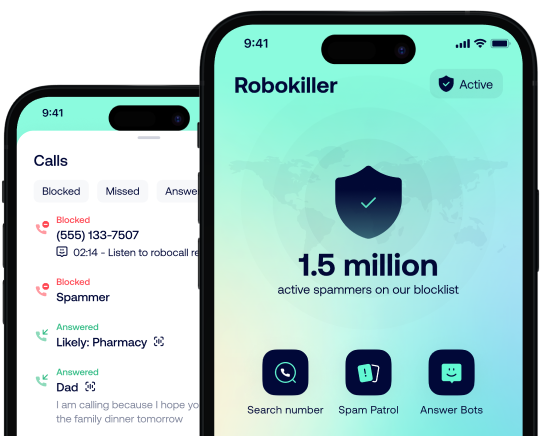Get the
Robokiller app

(480) 550-3217
Scam
RoboKiller users have reported receiving spam
calls from this number
Negative
User reputation
Allowed
Robokiller status
Analytics
July 19, 2025
Last call
32,023
Total calls
32
User reports
Comments 4
The comments below are user submitted reports by third parties and are not endorsed by Robokiller
See more

Breathing heavy and moaning.
July 14, 2025
This is actually Discover card and I almost missed an important call because it was blocked.
August 18, 2021
Block
October 2, 2020
This is a phantom debt collection scam! This is what the Federal Trade Commission calls a phantom debt collection scam where the scammer pretends to be a debt collector, lawyer, or law enforcement and threatens to sue or arrest you using harassment (repeated phone calls), lies, threats, and intimidation to collect on fake debts that you do not owe. Although more than 95% of all North America phone scams originate from crowded phone rooms in India that run numerous fraud, extortion, and money laundering scams every day, a few of these phantom debt collection scams have been committed by Americans, but most fake debt collectors are East Indian scammers. Another version of these phantom debt collection scams is the frequent extortion scams perpetrated solely by East Indians posing as Social Security or IRS officers threatening to sue or arrest you for fake unpaid back taxes. This scam call begins with a pre-recorded message that includes robotic text-to-speech customizations of the message to call you by your name in order to make the message sound like a personal phone call and to gain your trust. It is easy to acquire huge phone database listings of millions of names associated with phone numbers and addresses and have the robo-dialer automatically say your name. The pre-recorded message usually also references vague and fake financial accounts that are unpaid, fake names of the debt collector handling your fake debts, fake ID codes for your fake debt, and they often falsely say "our numerous attempts to contact you at your home and workplace have been unsuccessful and this is our final attempt", which is all false and intended to make it sound urgent. You are then asked to either press "1" or phone them back, often at a different number since these scams spoof hundreds of fake Caller ID numbers, and then you actually speak to the East Indian scammer. Here is how to tell the difference between a real debt collector and a scammer: A debt collector must tell you information about your debt such as the name of the creditor, the exact amount owed, and if you dispute the debt, the debt collector has to obtain verification of the debt. A scammer either avoids providing this information or provides false information. A debt collector has to mail you a printed-on-paper "validation letter" within five days of first contacting you. If you do not dispute the debt in writing within 30 days, the debt collector has the right to assume the debt is valid. Scammers always pressure you to settle the debt immediately, often demanding that you make a money transfer from you bank that can be untraceable; this is very common with East Indian scammers posing as debt collectors and fake IRS officers. A scammer may threaten to tell your family and employer about your debts, but a real debt collector can only ask other people about your address, phone number, and place of employment; they cannot tell other people about your debts. Scammers will ask for your bank account and routing numbers and Social Security number, whereas real debt collectors will not. Ask the debt collector for their name, company name, street address, and a callback number, which all real debt collectors will provide. Every one of the thousands of East Indian scammers will also immediately fail this test since all of the East Indian scammers use spoofed fake Caller ID numbers or disposable VoIP numbers. If you suspect a scam, contact the creditor the debt collector claims to be working for and find out who has been assigned to collect the debt.
December 28, 2019